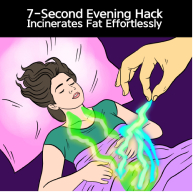Menopause night sweats are a common and often distressing symptom faced by many women transitioning through menopause. Characterized by sudden episodes of intense warmth and sweating during sleep, these night sweats can severely disrupt sleep quality and overall well-being. Fortunately, there are numerous natural remedies and lifestyle strategies that can effectively help women manage these symptoms holistically and safely.
Herbal Remedies: Nature’s Support for Night Sweats
Menopause causes hormonal fluctuations that trigger vasomotor symptoms such as hot flashes and night sweats. Many women turn to herbal remedies as natural alternatives to hormone replacement therapy. Notable herbs include:
- Black Cohosh: Native to North America, black cohosh is among the most widely studied herbs for reducing the frequency and severity of hot flashes and night sweats. Clinical trials show it can improve menopausal vasomotor symptoms and has a generally safe profile when used appropriately. However, women with liver conditions should exercise caution.
- Evening Primrose Oil: Rich in gamma-linolenic acid (GLA), evening primrose oil is traditionally used to balance hormonal fluctuations and alleviate night sweats. Though research has mixed results, some women find it helpful.
- Dong Quai: Known as “female ginseng,” this traditional Chinese herb may aid in reducing hot flash intensity and improving sleep, especially when combined with other herbs like black cohosh and chamomile.
Herbal combinations often yield better results than single herbs alone. Always consult with a healthcare provider before starting any herbal supplements to avoid potential interactions and ensure safety.
Dietary Supplements and Nutrition for Menopause Night Sweats
Nutrition plays a pivotal role in managing menopause symptoms naturally:
- Phytoestrogen-Rich Foods: Incorporating plant estrogens found in soy products, flaxseeds, and legumes can mildly mimic estrogen effects, potentially easing hot flashes and night sweats.
- Omega-3 Fatty Acids: Found in fatty fish (salmon, mackerel), flaxseed, chia seeds, and walnuts, omega-3s possess anti-inflammatory properties that may help regulate body temperature and reduce vasomotor symptoms.
- Calcium and Vitamin D: Crucial for bone health, these nutrients support overall wellness during the hormonal changes of menopause.
- Vitamin E: This antioxidant may reduce inflammation and alleviate symptoms like hot flashes and night sweats, also improving mood and combating fatigue.
Alongside a nutrient-rich, balanced diet, adopting these supplements under medical guidance can enhance symptom control and improve quality of life.
Mind-Body Approaches: Enhancing Symptom Tolerance and Emotional Wellbeing
Mind-body therapies offer a drug-free option to ease the distress associated with menopause night sweats:
- Mindfulness-Based Stress Reduction (MBSR): Practicing mindfulness meditation, guided imagery, and deep breathing can reduce anxiety and the perceived bothersomeness of hot flashes and night sweats, enhancing emotional resilience.
- Yoga and Tai Chi: Both have demonstrated clinically significant reductions in the frequency and severity of vasomotor symptoms, including night sweats, while also improving sleep disturbances.
- Acupuncture: Clinical trials report acupuncture can reduce night sweat intensity and provide symptom relief for many women.
Incorporating these mind-body techniques can empower women to manage menopause symptoms holistically, addressing both physical discomfort and psychological impacts.
Lifestyle Adjustments to Reduce Night Sweats and Improve Sleep
Simple lifestyle and environmental changes can make a significant difference in managing night sweats:
- Clothing Choices: Choose loose-fitting, breathable sleepwear made from natural, moisture-wicking fabrics like cotton, linen, or bamboo. Avoid restrictive or synthetic materials that trap heat.
- Sleep Environment: Keep bedroom temperatures cool (60-67°F / 15-19°C), use breathable bedding materials, and consider fans or cooling devices to maintain airflow.
- Hydration: Sip cool water during the night to help regulate internal body temperature.
- Dietary Habits: Avoid caffeine, alcohol, and spicy foods in the evening to reduce triggers for night sweats.
- Exercise: Engage in regular moderate physical activity to regulate hormones and improve sleep, but avoid vigorous activity close to bedtime.
- Stress Management: Relaxation techniques such as yoga, meditation, and deep breathing can lower cortisol levels that may otherwise aggravate sweating episodes.
Additionally, consider investing in scientifically designed cooling pajamas made from advanced fabrics like polyester-spandex blends or micromodal, which actively wick moisture away and enhance breathability, offering a comfortable sleep experience for hot sleepers.
Comparing Natural Remedies to Hormone Therapy
Hormone replacement therapy (HRT) remains the most effective treatment for menopause night sweats but carries potential risks and is not suitable for everyone. Many women seek natural, hormone-free options due to concerns about side effects or personal preferences.
Natural remedies—including herbal supplements, nutritional adjustments, mind-body therapies, and lifestyle changes—offer lower-risk alternatives. While the symptom relief may be less immediate or potent compared to HRT, these holistic approaches can substantially improve comfort and quality of life when personalized and combined effectively.
Consulting healthcare providers is crucial to tailor treatments, monitor for contraindications, and integrate natural methods safely alongside any conventional therapies.
Conclusion: Empower Your Menopause Journey with Natural Relief
Menopause night sweats can challenge your comfort and sleep, but adopting natural remedies empowers you to manage symptoms gently and effectively. Herbal options like black cohosh and evening primrose oil, nutrition rich in phytoestrogens and omega-3 fatty acids, mind-body practices such as yoga and mindfulness, plus lifestyle and environmental tweaks offer a comprehensive toolkit.
By embracing these holistic strategies, you can enhance your well-being, improve sleep quality, and navigate menopause with greater ease. Remember to consult with your healthcare team to create a personalized plan that reflects your health needs and goals.
Take the first step today toward natural, sustainable relief from menopause night sweats and reclaim restful nights ahead.







